Chan Shun Concert Hall at the Chan Centre for the Performing Arts | Map
Alexander Weimann, Music Director; Gli Angeli Genève; Aleksandra Lewandowska, soprano; Alex Potter, counter-tenor; Thomas Hobbs, tenor; Stephan MacLeod, bass-baritone; Emma Hannan, ripieno/soprano; Bach – Trauer Ode BWV 198, ripieno/counter-tenor; Colin Balzer, ripieno/tenor; Paul Grindlay, ripieno/bass; Pacific Baroque Orchestra
The Pacific Baroque Orchestra with the soloists of Gli Angeli Geneve directed by Alexander Weimann, Aleksandra Lewandowska, soprano, Alex Potter, alto, Thomas Hobbs, tenor, Stephan MacLeod, bass baritone
J.S. Bach’s great Trauer Ode is a large-scale secular cantata for orchestra and soloists that he composed in 1727 to commemorate the death of Christiane Eberhardine, the wife of Augustus, the Elector of Saxony and King of Poland. It is unusually richly scored, even for J.S. Bach, and includes not only pairs of flutes and oboes d’amore, but also of violas da gamba and lutes in addition to a full string orchestra. Join the PBO and Gli Angeli for the dramatic conclusion of the Vancouver 2018 Bach Festival.
To download/view the programme page, notes, texts and translations, click here.
This concert is generously supported by the Drance Family in honour of José Verstappen and Betty Drance
Click here for information about parking around / transiting to Christ Church Cathedral
Programme
Johann Sebastian Bach
(1685-1750)
“Wir müssen durch viel Trübsal” – CANTATA BwV 146
Soprano, Alto, Tenore, Basso, 4-part Chorus,
Flauto traverso I/II, Oboe I/II, Taille, Oboe d’amore I/II, Violino I/II, Viola, Organo, Continuo
Sinfonia
Coro: Wir müssen durch viel Trübsal in das Reich Gottes eingehen. Aria: Ich will nach dem Himmel zu
Recitativo: Ach! wer doch schon im Himmel wär! Aria: Ich säe meine Zähren
Recitativo: Ich bin bereit
Aria (Duetto): Wie will ich mich freuen, wie will ich mich laben
Choral: Freu dich sehr, o meine Seele
INTERVAL
“Lass, Fürstin, lass noch einen Strahl“ (Trauerode) – CANTATA BwV 198
Soprano, Alto, Tenore, Basso, 4-part Chorus,
Flauto traverso I/II, Oboe d’amore I/II, Violino I/II, Viola, Viola da gamba I/II, Liuto I/II, Continuo
ERSTER TEIL:
Coro: Lass, Fürstin, lass noch einen Strahl
Recitativo: Dein Sachsen, dein bestürztes Meißen
Aria: Verstummt, verstummt, ihr holden Saiten!
Recitativo: Der Glocken bebendes Getön
Aria: Wie starb die Heldin so vergnügt!
Recitativo: Ihr Leben ließ die Kunst zu sterben
Coro: An dir, du Fürbild großer Frauen
ZWEITER TEIL:
Aria: Der Ewigkeit saphirnes Haus
Recitativo: Was Wunder ists? Du bist es wert
Coro: Doch, Königin! du stirbest nicht
Programme Notes
“… attending to everything at once and, from a group of thirty or even forty musicians reminding one of the rhythm and beat by nodding his head, another by stamping his foot, and a third by wagging his finger, giving the right note to one with the top part of his voice, another with the bottom, and a third with the middle, moreover, though he is but one man, with the hardest role of all, while the performers combine to make a great deal of noise, nonetheless noticing immediately if anything sounds wrong, and what is wrong; and holding them all together in due order, stepping in at any point and putting right any unsteadiness, carrying the rhythm in every limb; one man testing every harmony with his sharp ear, one man producing every voice from the confines of his one throat.”
This was Bach at work, according to his colleague, Thomas School Rector Johann Matthias Gesner. Often imagined today to be a difficult and demanding character constantly in conflict with bosses and colleagues, Gesner’s description and the music on this programme show a different side of Johann Sebastian Bach, a consummate musician balancing and harmonizing diverse considerations and opposing forces: the abilities and needs of his ensemble members, the demands and desires of his employers, musical ideals with constrains of time and personnel, tensions between Protestants and Catholics, sacred and secular spheres, and paradoxes of faith.
As Thomas Cantor, Bach was responsible for preparing the music for Leipzig’s four main churches and organizing music for various civic functions. At the beginning of his tenure in Leipzig, he ambitiously endeavored to provide his own cantatas for all fifty-nine of the Sunday services and special feast days in the liturgical year, weekly composing, copying, and rehearsing half an hour of new music with a vocal ensemble of eight to twelve school students and an instrumental ensemble consisting of four professional town musicians and whichever older Thomas School pupils, university students, or Bach sons could play well enough to fill in the gaps… all the while teaching basic musicianship skills to the young musicians. Not surprisingly, then, he sometimes turned for help and inspiration to music that he had written earlier in his career. The first two movements of Cantata 146 were probably based on a violin concerto, now lost, from his time in Weimar. Here, Bach substitutes organ for violin, reinventing the first movement as an exuberant sinfonia with a shimmering organ solo, and the second movement as a lamenting chorus, ingeniously weaving vocal parts into the original instrumental texture. The tortuous violin line, once the focus of this movement, becomes an organ solo commenting on the music and message of the chorus. Although the only parts surviving from this cantata date from after Bach’s lifetime, it was likely composed sometime between 1726 and 1728 along with several other cantatas with organ solos. Probably, Bach had a gifted young keyboard player among his pupils, whom he chose to challenge and exhibit, perhaps his eldest son Wilhelm Friedemann, then in his mid-teens. A few years later, this music surfaces again as a harpsichord concerto with parts copied by teenaged Carl Philipp Emanuel. Evidently, J.S. Bach considered it successful teaching material.
Cantata 146 meditates on Jesus’ farewell message, the gospel text for Jubilate Sunday, the third Sunday after Easter. “Very truly I tell you, you will weep and mourn while the world rejoices. You will grieve, but your grief will turn to joy.” The juxtaposition of the sorrows of mortal life and the comfort offered by faith and the hope of heaven characterize this entire cantata. Following the sorrow of the opening chorus, the pendulum swings to emphasize joy, shadowed by worldliness painted with dark harmonies, in the alto aria “I would go to heaven”, then back again in the agitated soprano recitative and aria “I sow my tears with an anxious heart”. Strikingly pairing the sweet mellowness of the flute with the dark, mournful timbre of two oboes d’amore, this aria expresses such intense suffering that hope for future union with God becomes a longing for death. The dance-inspired tenor and bass duet transports us back to the realm of rejoicing, and the cantata is summed up with a simple chorale verse.
By contrast, Cantata 198, the mourning ode for Saxon Electoress and Polish Queen Christiane Eberhardine, is a secular cantata celebrating the princess’ life, written to accompany the funeral oration held in her honor at the University Church in Leipzig in 1727. The poem, by rising star of the literary world, Johann Christoph Gottsched, follows learned conventions rooted in classical rhetoric, lamenting and emphasizing the extent of the loss, praising and memorializing the electoress, and consoling her loyal subjects. Faced with a strophic poem and seriously pressed for time, Bach carves the text somewhat arbitrarily into the alternating recitatives and arias with framing choruses characteristic of the cantata. However, he honours the many striking images in the poem by giving the recitatives graphic orchestral accompaniment, rather than the usual sparse support of continuo alone, and by setting the music for an unusually diverse and colorful instrumental ensemble, including flutes, oboes, oboes d’amore, violins, violas, violas da gamba, two lutes and continuo. Perhaps mindful of the scholarly audience, his music deliberately demonstrates compositional skill. Each of the choruses applies a different musical principal. The first is a concerto, featuring each instrumental group in turn, the second is a fugue, and the last a dance song. The whole cantata centers around the moment of the electoress’ “cheerful” death, which Bach sets as an alto aria accompanied by the particularly subdued tones of two violas da gamba and two lutes.
The commission of this cantata was a political minefield for Bach. In 1727, he did not hold any official university position, and attempts were made to have the music composed by the music director of the university church, Johann Gottlieb Görner, with whom Bach had already had professional conflicts. After the student organizing the memorial threatened to cancel the event, the university registrar sought Bach’s signature on a declaration that this commission would not set a precedent for abuse of Görner’s rights in the future. Bach avoided signing the document, and two years later, became director of the collegium musicum at the university. Remarkably, his personal friendship with Görner remained in tact until the end of his life, when Maria Magdalena asked Görner to act as guardian for four of the young Bach children. The memorial also highlighted religious conflict in Saxony. The electoress was revered by her Lutheran subjects for not concurring with her husband’s conversion to Catholicism, hence she is referred to as “protector of the faith” in this cantata. Under the law, the elector had the right to force his subjects to convert to his faith of choice. Just a few years later, Bach proved he had carefully navigated these tensions, seeking and receiving an official position as court composer at the Catholic Saxon court.
The cantatas on this programme and the stories surrounding them show Bach attending to the needs and desires of the people around him, teaching, comforting, memorializing. This programme and the whole of the Vancouver Bach Festival celebrates the continued power of Bach’s music to build bridges, cross boundaries, explore paradox, and speak to the human condition.
Christina Hutten
Programme Texts and Translations
To download/view the programme page, notes, texts and translations, click here.
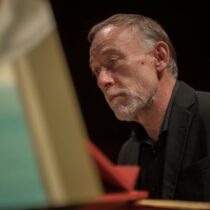
Alexander Weimann, Music Director
Alexander Weimann is one of the most sought-after ensemble directors, soloists, and chamber music partners of his generation. After travelling the world with ensembles such as Tragicomedia, Cantus Cölln, the Freiburger Barockorchester, Gesualdo Consort and Tafelmusik, he now focuses on his activities as Music Director of the Pacific Baroque Orchestra in Vancouver, Music Director of the Seattle Baroque Orchestra, and regular guest conductor of ensembles including the Victoria Symphony, Symphony Nova Scotia, Arion Baroque Orchestra in Montreal and the Portland Baroque Orchestra.
Alex was born in Munich, where he studied the organ, church music, musicology (with a summa con laude thesis on Bach’s secco recitatives), theatre, mediæval Latin, and jazz piano, supported by a variety of federal scholarships. From 1990 to 1995, he taught music theory, improvisation, and Jazz at the Munich Musikhochschule. Since 1998, he has been giving master classes in harpsichord and historical performance practice at institutions such as Lunds University in Malmö, the Bremen Musikhochschule, the University of California (Berkeley), Dartmouth College (New Hampshire), McGill University, Université de Montréal, and Mount Allison (New Brunswick). He now teaches at the University of British Columbia and directs the Baroque Orchestra Mentorship Programme there. He has received several JUNO and GRAMMY Award nominations – most recently, for the album Nuit Blanches with the Pacific Baroque Orchestra and Karina Gauvin.
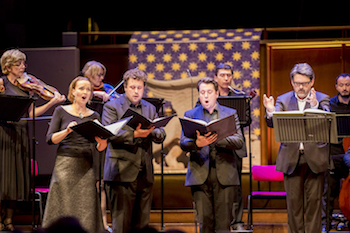
Gli Angeli Genève
Gli Angeli Genève was founded by Stephan MacLeod in 2005 as an ensemble of varying composition that performs vocal and instrumental repertoire of the renaissance, baroque and classical periods. It is made up of musicians who either have solo careers of their own or who are chamber recitalists in the field of Baroque music, but who are not exclusively active in this clearly defined area; in other words, they perform more than just early music, their eclecticism guaranteeing their enthusiasm and the sincerity of their research. While performing the complete Bach cantatas in a long-term concert series in Geneva, in September 2017, Gli Angeli Genève initiated a new adventure of performing of all Haydn Symphonies over a decade. The ensemble is regularly invited to leading festivals and concert venues around the world. In 2018, Gli Angeli Genève will perform among others in Saintes, Utrecht, Paris, in the Netherlands and in Ottawa.
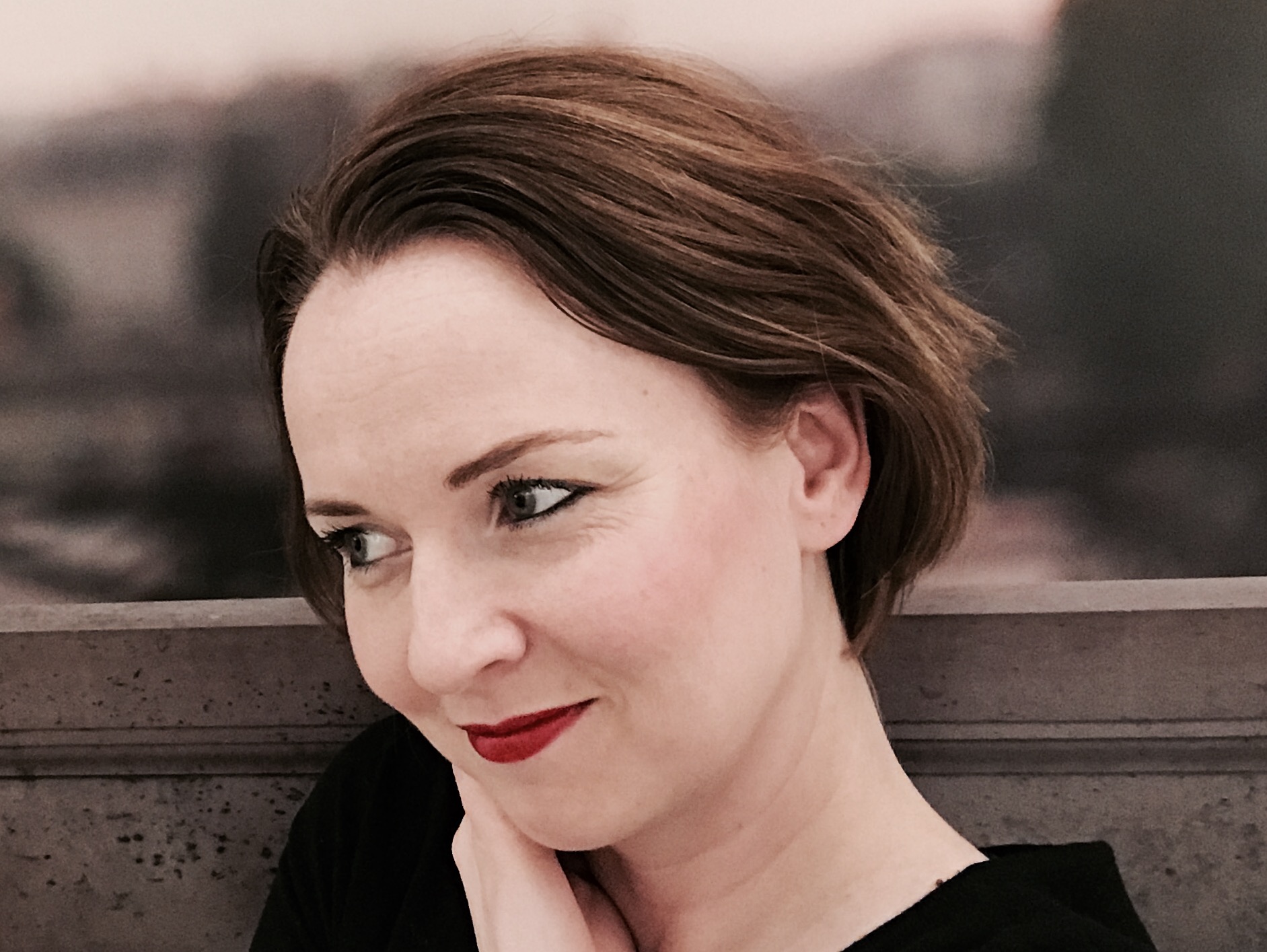
Aleksandra Lewandowska, soprano
Aleksandra began her musical road studying violin and piano. She later turned her attention to singing and eventually graduated with distinction from the Music Academy in Poznan (Poland) in the class of Wojtek Drabowicz and continued as a student of postgraduate studies at the University of Music Franz Liszt in Weimar (Germany).
She now has an established international career as a solo and ensemble singer, working regularly with leading groups and conductors such as Philippe Herreweghe (Collegium Vocale Gent), Jos van Veldhoven (Nederlands Bach Vereiniging), Stephan MacLeod (Gli Angeli Genève), John Duxbury (Cantatio), the Wroclaw Baroque Orchestra, as well as with conductors including Christophe Coin, Václav Luks, Yves Corboz, Andrew Parrott, Ivan Fischer, Giovanni Antonini, Skip Sempé, Daniel Reuss, Alexander Weimann, Christoph Spering, Peter Neumann and Michael Willens.
Aleksandra has been a guest artist at festivals including Musikfest Bremen, Bachwoche Stuttgart, Thüringer Bachwochen, Festival Oude Muziek (Utrecht), Early Music Vancouver, Festival de Saintes, Lumine Voice Festival of Lofoten, Kulturwald Festspiele Bayerischer Wald and Wratislavia Cantans.
Though mainly a specialist in earlier repertoires, Aleksandra also now performs contemporary repertoire with enthusiasm (notable collaborations include projects with the Swiss quartet, Quatuor Sine Nomine).
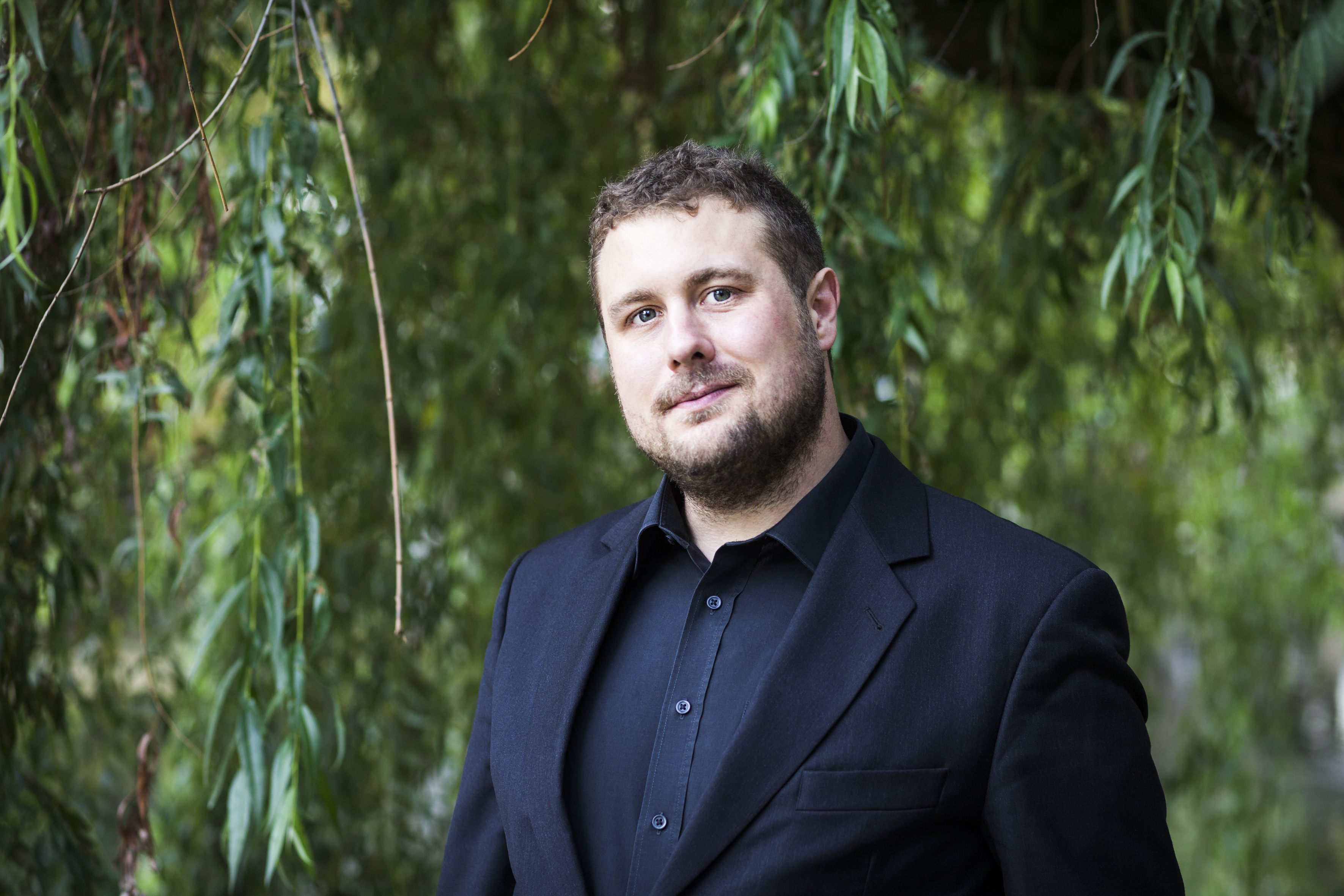
Alex Potter, counter-tenor
My mother always sang to me when I was a small child, which is why I began to sing. Her voice for me was intensely bound together with emotion, which will always remain with me. As a cathedral chorister, this emotional basis became intertwined with a fascination for text and symbolism in music, expanded upon and deepened during studies in Oxford and Basel. Remaining faithful to these origins over nearly twenty years in the profession, I continue to develop as a singer, musician and human, changed and enriched by the joy and sadness which life brings.
Nowadays you are most likely to hear me somewhere with Bach, although I also love to sing other music. When not performing, you will find me at home with my family, reading something geeky, wasting time on the internet, or cooking. Sharing and exchanging with other people, be it music, food, or conversation, is one of the great pleasures of life.
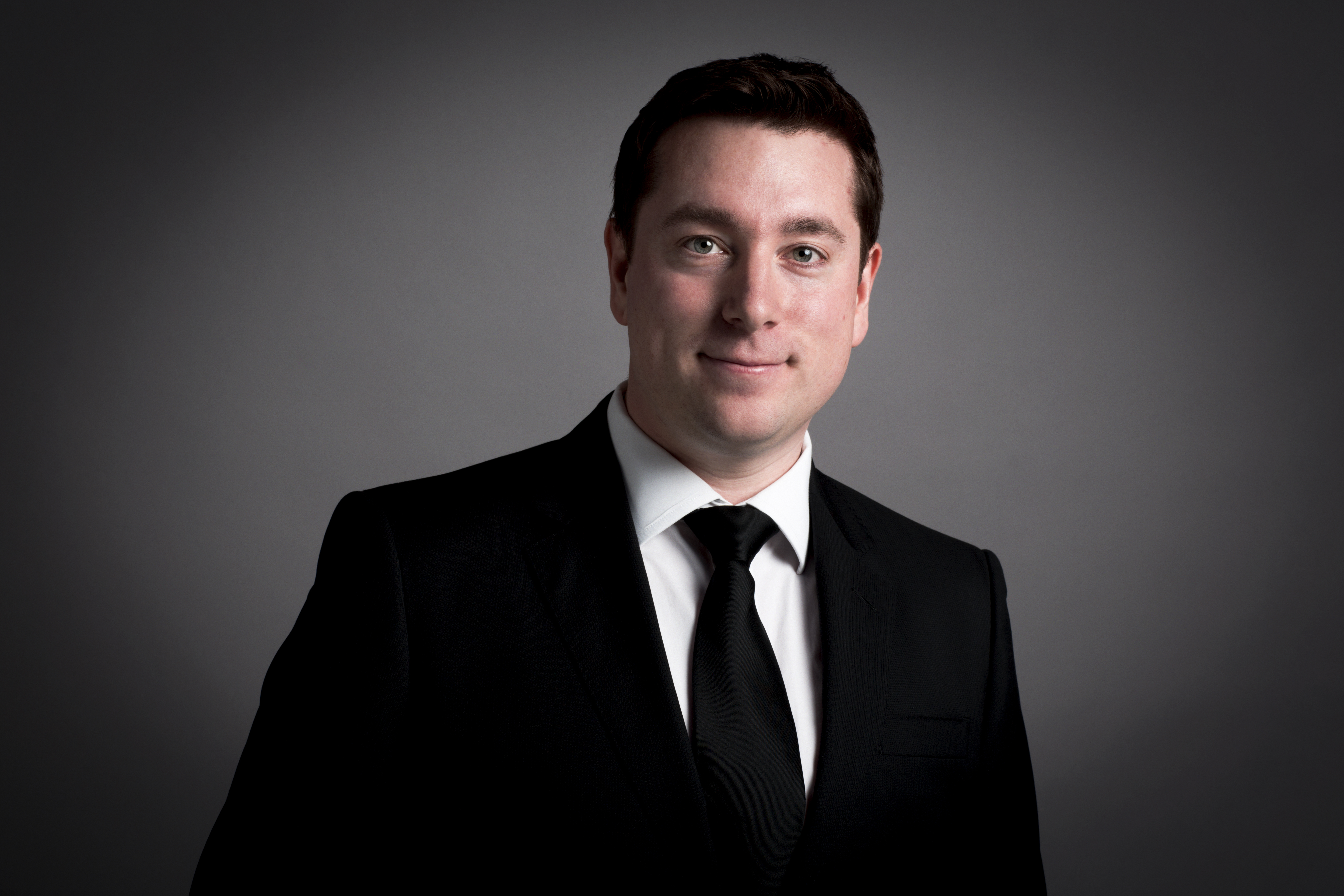
Thomas Hobbs, tenor
Thomas Hobbs is in demand with many leading baroque and early music ensembles, appearing throughout Europe and the US as a soloist in key works from the 16th, 17th and 18th centuries.
Current and future engagements include Haydn’s Creation with Israel Camerata in Jerusalem and with the London Philharmonic Orchestra, tours with Collegium Vocale Gent, and Bach cantatas, Mass in B Minor, and Easter Oratorio with the Nederlandse Bachvereniging. Hobbs will also sing Bach with the Musikpodium Stuttgart, and Monteverdi Vespers with the Academy of Ancient Music.
Recent concert performances include Damon in Acis and Galatea with Dunedin Consort, Bach cantatas with the Nederlandse Bachverenigning and Ensemble Pygmalion, Bach’s Christmas Oratorio with the Tonkünstler-Orchester Niederösterreich, Tonhalle Orchester Zürich and Le Concert Lorrain. Hobbs has also sung Evangelist in the Bach St Matthew Passion and St John Passion with the Choir of King’s College, Cambridge.
Hobbs’s operatic roles include a critically acclaimed Telemachus in The Return of Ulysses in a new production for English National Opera conducted by Jonathan Cohen, Apollo and Shepherd in Monteverdi’s Orfeo in semi-staged performances with Richard Egarr and the Academy of Ancient Music, the title role in Albert Herring and Ferrando in Così fan tutte. Also a keen recitalist, Hobbs’ recent highlights include performing Brett Dean’s Winter Songs at the Cheltenham Festival, Vaughan Williams’s On Wenlock Edge with the Edinburgh Quartet, Schubert’s Die Schöne Müllerin, Schumann’s Liederkreis, Op.39 and a recital of Mozart songs at London’s Kings Place.
Born in Exeter, Thomas Hobbs studied at the Royal College of Music under the tutelage of Neil Mackie, where he was awarded the RCM Peter Pears and Mason scholarships, and at the Royal Academy of Music under Ryland Davies, where he held a Kohn Bach Scholarship in addition to a full entrance scholarship. He was also a member of the prestigious Académie at the Aix-en-Provence Festival, where he performed in concert with Louis Langrée and the Camerata Salzburg.
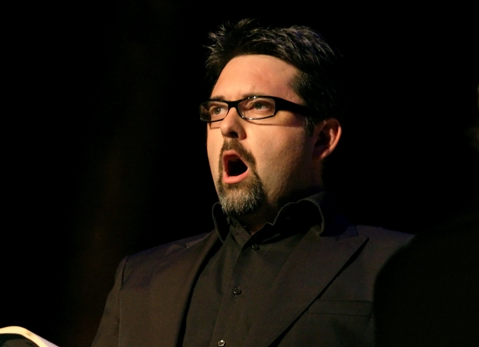
Stephan MacLeod, bass-baritone
Born in Geneva, Stephan MacLeod first played the violin and the piano and then studied singing with Kurt Moll in Cologne and with Gary Magby in Lausanne. Active all over the world as a renowned concert singer since his early twenties, his desire to conduct led him to establish his own ensemble, Gli Angeli Genève, in 2005. The ensemble has since become one of the most respected European ensembles specializing in period performance. In recent years, he has been invited to conduct a production of Cavalli’s La Calisto in Geneva, Mozart concerts at the Lausanne Opera, a production of Sondheim’s Sweeney Todd in Geneva, Bach Motets with the Netherlands Bach Society, Bach’s Matthew Passion in Switzerland, Germany, and the Netherlands, and orchestral works by Bach and Rameau with the Orchestre de la Suisse Romande.
As a soloist, Stephan is particularly active in the oratorio repertoire, particularly under Philippe Herreweghe, Gustav Leonhardt(†), Franz Brüggen(†), Masaaki Suzuki (Bach Collegium Japan), Jordi Savall, Philippe Pierlot (Ricercar Consort), Michel Corboz, Daniel Harding, Václav Luks, Sigiswald Kuijken, Konrad Junghänel (Cantus Cölln), Christophe Coin, Helmut Rilling, Frieder Bernius, Jos Van Immerseel, Jésus López Cobos, Hervé Niquet, Paul Van Nevel (Huelgas Ensemble), and with such ensembles as the Akademie für Alte Musik Berlin, Musica Antiqua Köln, the Freiburger Barockorchester, Tafelmusik, and the RIAS-Kammerchor. In the opera world, he has sung in several productions in Brussels (La Monnaie), Venice (La Fenice), Cologne, Bilbao, Edinburgh, and Geneva.
Stephan currently holds a professorship in singing at the Haute Ecole de Musique of Lausanne and is about to embark on a new concert series with Gli Angeli featuring performances of the complete Haydn Symphonies.
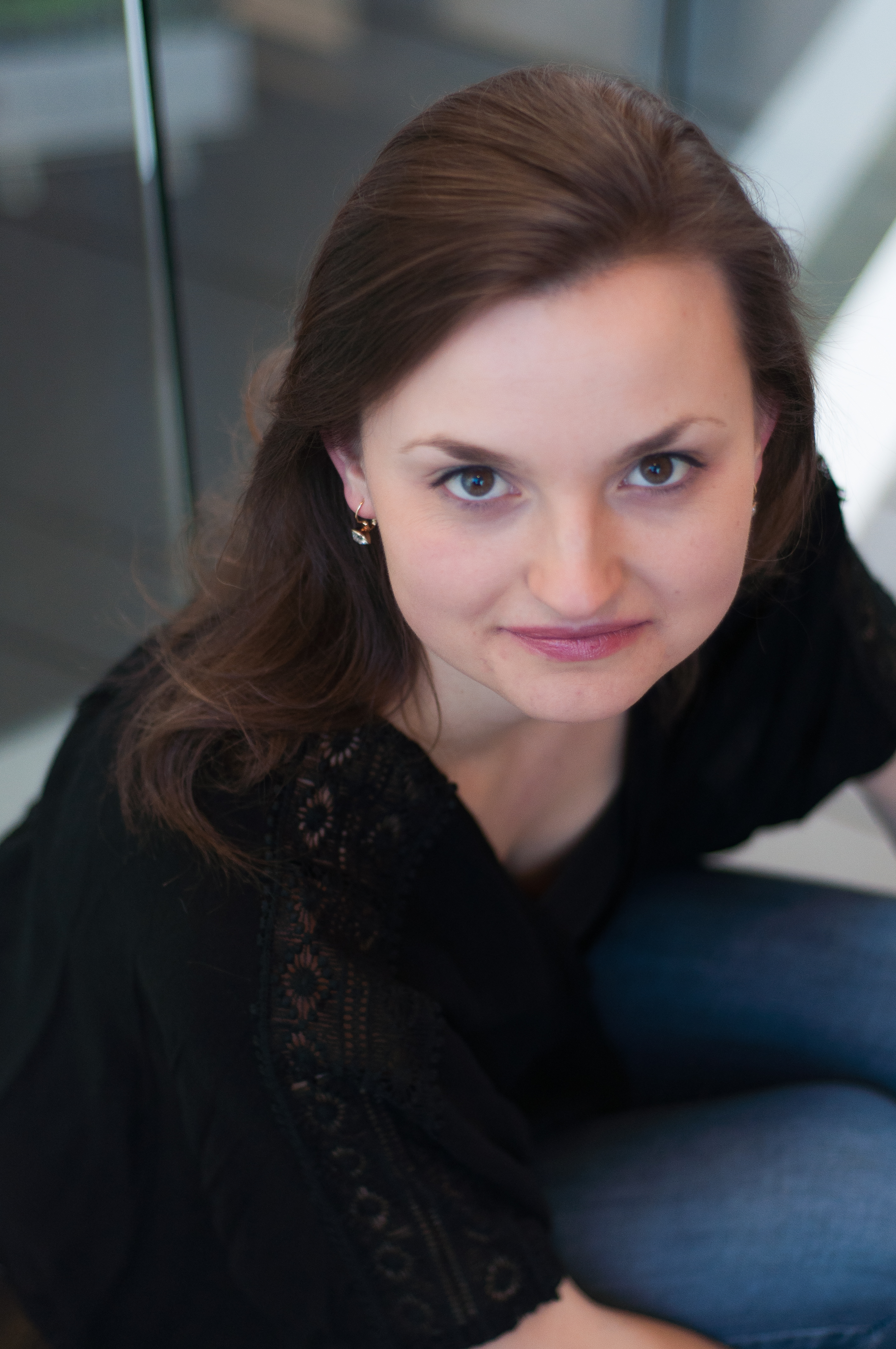
Emma Hannan, ripieno/soprano
Emma Hannan, soprano, is a native of Vancouver, BC, and is known to local audiences for her many performances with the Victoria Baroque Players including the Bach’s St. John Passion, Handel’s Dixit Dominus, and Bach’s Jesu meine Freude. She has been featured as a soloist with such groups as the Victoria Pacific Baroque Festival, Theatre of Early Music, Toronto Consort, and Toronto Masque Theatre. Emma is also a member of Tafelmusik Chamber Choir. Past highlights include the touring Northwest Baroque Masterworks Project Praetorius Vespers with Early Music Vancouver, Castor in Toronto Consort’s production of Cavalli’s Helen of Troy, and the dance-opera, Bearing, which premiered in the 2017 Luminato festival. As a recording artist, she has sung on the Sony Classical album Four Thousand Winter and on Tafelmusik’s recent recording of Beethoven Symphony no. 9. Last October, Emma joined Toronto Masque Theatre for their final season in their double bill of Purcell’s Dido and Aeneas and Aeneas and Dido by James Rolfe.
Emma is a graduate of the Victoria Conservatory of Music, where she studied with Nancy Argenta and Ingrid Attrot. She recently completed her BMus in Voice Performance at the University of Toronto and is now studying with mezzo-soprano Laura Pudwell. Emma is an alumna of the Victoria Conservatory Advanced Oratorio Course and the Tafelmusik Baroque Summer Institute.
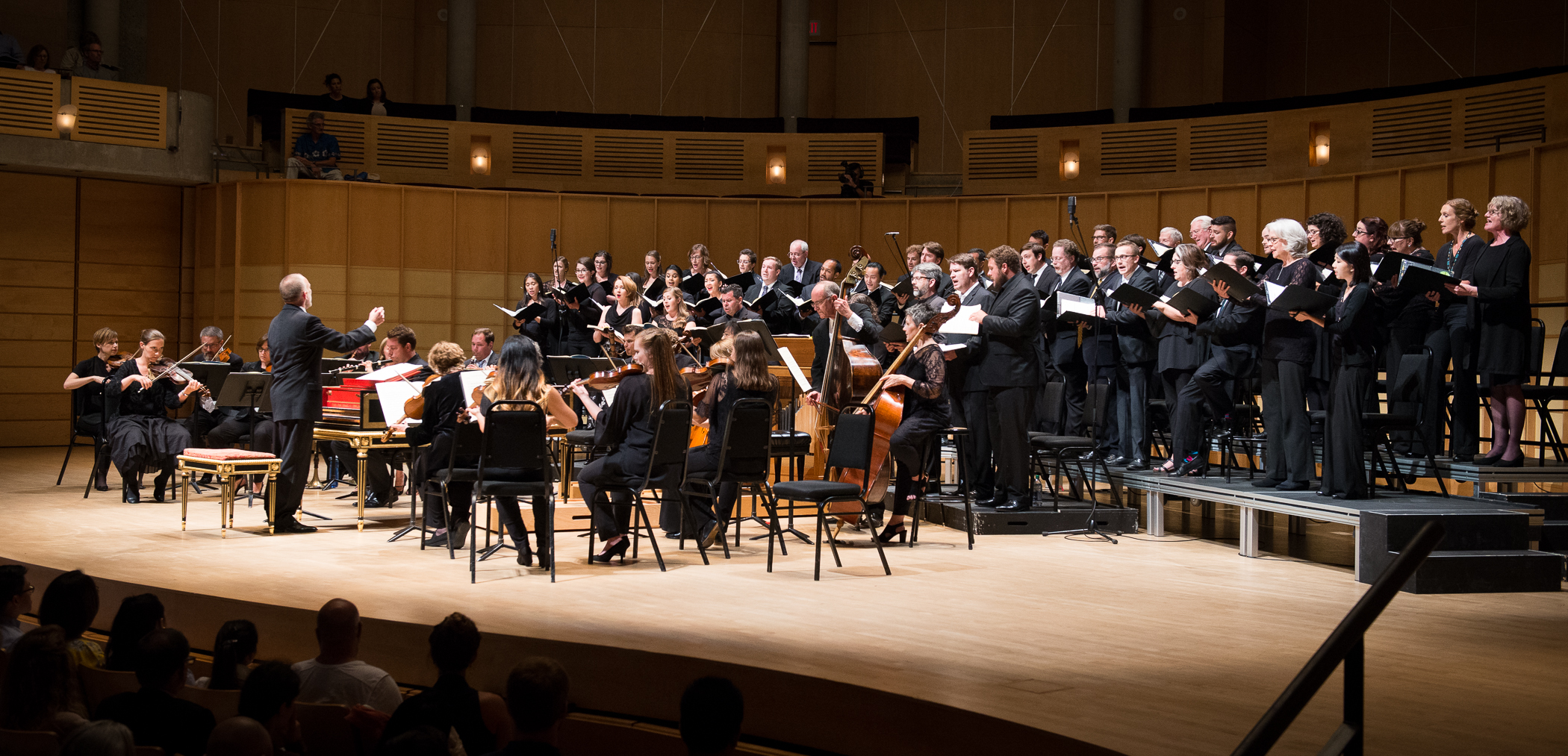
Bach – Trauer Ode BWV 198, ripieno/counter-tenor
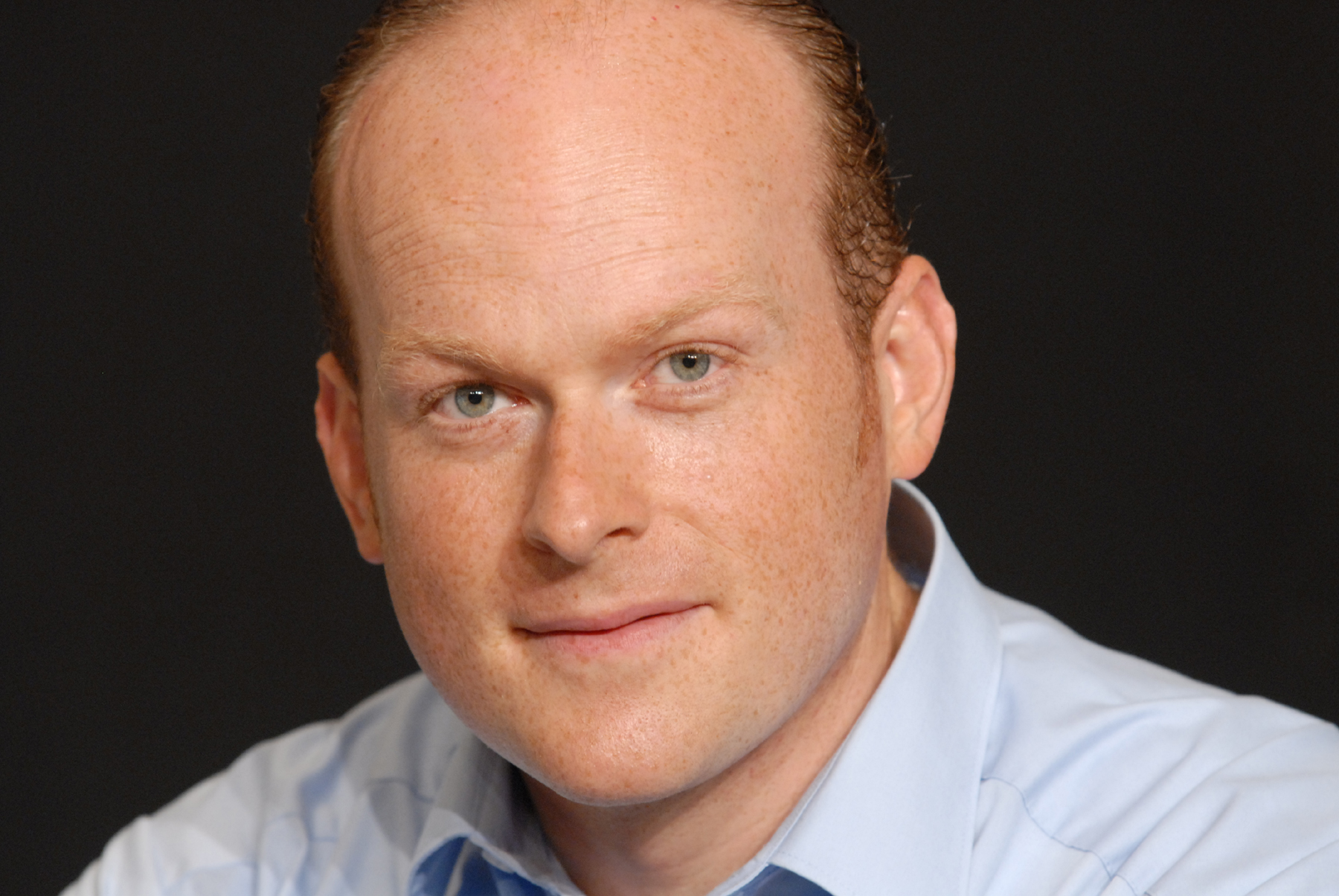
Colin Balzer, ripieno/tenor
Canadian lyric tenor Colin Balzer’s North American engagements include recitals at New York’s Frick Collection and on the Philadelphia Chamber Music series; concerts with the Portland, New Jersey, Utah, Victoria, Ann Arbor, Québec, Atlanta, and Indianapolis Symphonies; Early Music Vancouver; Tafelmusik and the Toronto Mendelssohn Choir; Les Violons du Roy; the National and Calgary Philharmonics; Ottawa’s National Arts Centre Orchestra; Musica Sacra and the Oratorio Society of New York at New York’s Carnegie Hall. In addition, he is regularly featured in opera productions at the Boston Early Music Festival.
Guest soloist appearances abroad include work with Collegium Vocale Gent led by Philippe Herreweghe, Fundacao OSESP Orchestra and Louis Langrée, Les Musiciens du Louvre under Marc Minkowski, Rotterdam Philharmonic led by Yannick Nézet-Séguin, Akademie für alte Musik under Marcus Creed, and the RIAS Kammerchor, Scottish Chamber Orchestra, Radio Kamer Filharmonie, Estonian Chamber Choir, and Musik Podium Stuttgart. Operatic forays include the role of Don Ottavio in Mozart’s Don Giovanni at the Bolshoi and in Aix-en-Provence and Mozart’s La finta giardiniera in Aix and Luxembourg.
Particularly esteemed as a recitalist, he has been welcomed at London’s Wigmore Hall, the Britten Festival in Aldeburgh, the Vancouver Chamber Music Festival, the Wratislavia Cantans in Poland, and at the Festspielhaus in Baden-Baden. Recordings to date include Wolf’s Italienisches Liederbuch and Eisler and Henze song anthologies. Mr. Balzer holds the rare distinction of earning the Gold Medal at the Robert Schumann Competition in Zwickau with the highest score in 25 years. Born in British Columbia, he received his formal musical training at the University of British Columbia with David Meek and with Edith Wiens at the Hochschule für Musik Nürnberg, Augsburg.
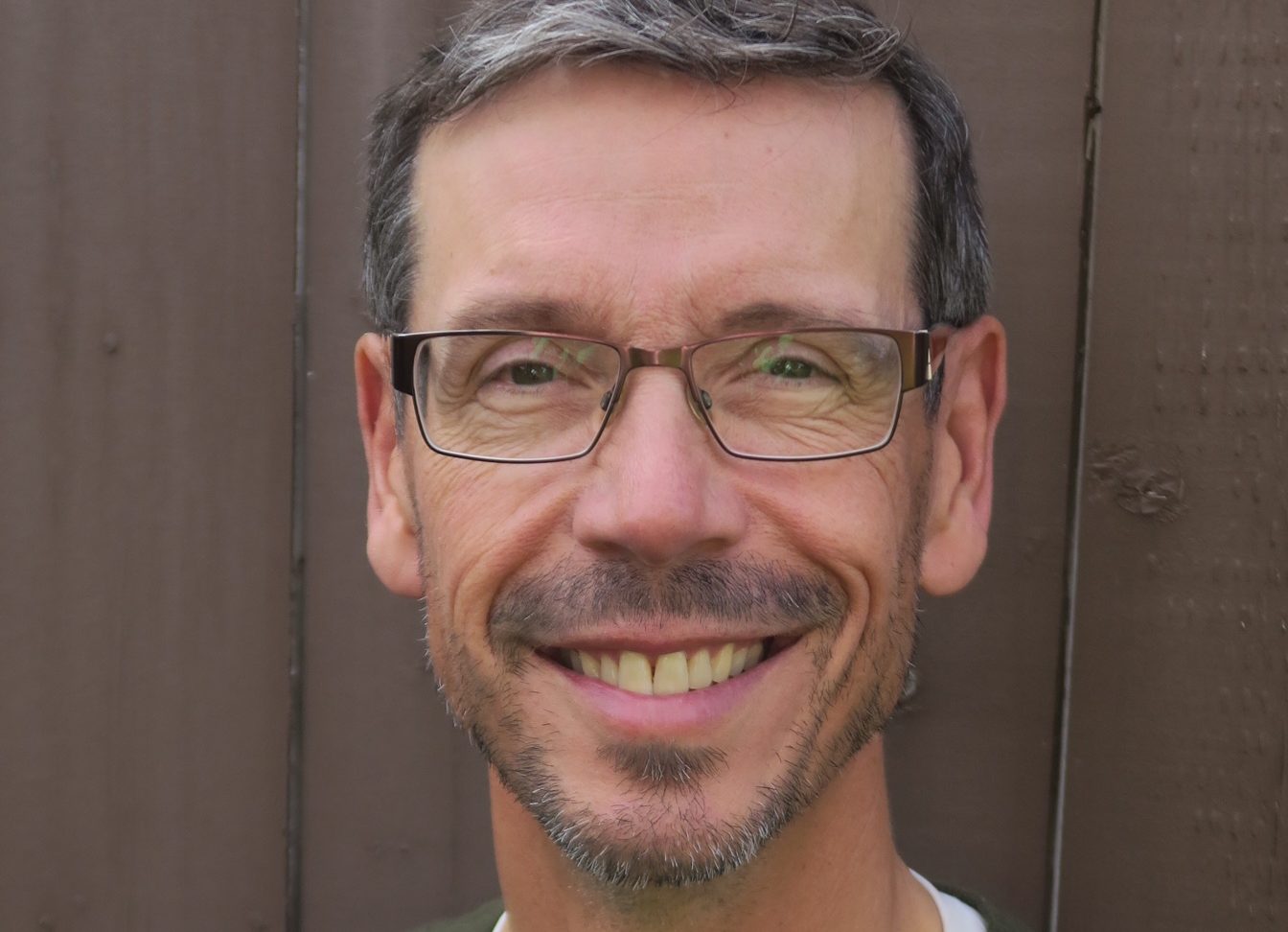
Paul Grindlay, ripieno/bass
Paul Grindlay, Bass feels fortunate to have been blessed with a unique bass voice. He is indebted to the many amazing teachers, mentors, conductors and colleagues who have inspired and supported him on his musical journey, including his parents and grandparents, his wife, brothers and so many others.
He has enjoyed a quarter century of professional performances with such groups as the Vienna Chamber Opera, Opera Atelier, Calgary Opera, Pacific Opera Victoria, American Bach Soloists, Carmel Bach Festival, Tafelmusik, Toronto Consort, Studio de Musique Ancienne de Montreal, Calgary Philharmonic Orchestra, VoiceScapes, Luminous Voices, Pro Coro Canada and many others. He has also recorded CDs for NAXOS Records, Toccata Classics and Marquis.
In 2004 Paul was appointed Artistic Director of the Calgary Boys’ Choir. He also directs the choir at Knox Presbyterian Church and is on the vocal faculty at Mount Royal Conservatory of Music. In spare time he is most likely to be found fly fishing, hiking, biking, swimming, cooking or writing poetry.
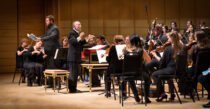
Pacific Baroque Orchestra
The ‘house band’ of Early Music Vancouver, The Pacific Baroque Orchestra (PBO) is recognized as one of Canada’s most exciting and innovative ensembles performing “early music for modern ears.” Formed in 1990, the orchestra quickly established itself as a force in Vancouver’s burgeoning music scene with the ongoing support of Early Music Vancouver. In 2009, PBO welcomed Alexander Weimann as Director. His imaginative programming, creativity and engaging musicianship have carved out a unique and vital place in the cultural landscape of Vancouver.
PBO regularly joins forces with internationally-celebrated Canadian guest artists, providing performance opportunities for Canadian musicians while exposing West Coast audiences to a spectacular variety of talent. The Orchestra has also toured throughout BC, the northern United States, and across Canada. Their 2019 East Coast Canadian tour with Canadian soprano Karina Gauvin culminated in a critically acclaimed album, Nuit Blanches, released by Atma Classique.



